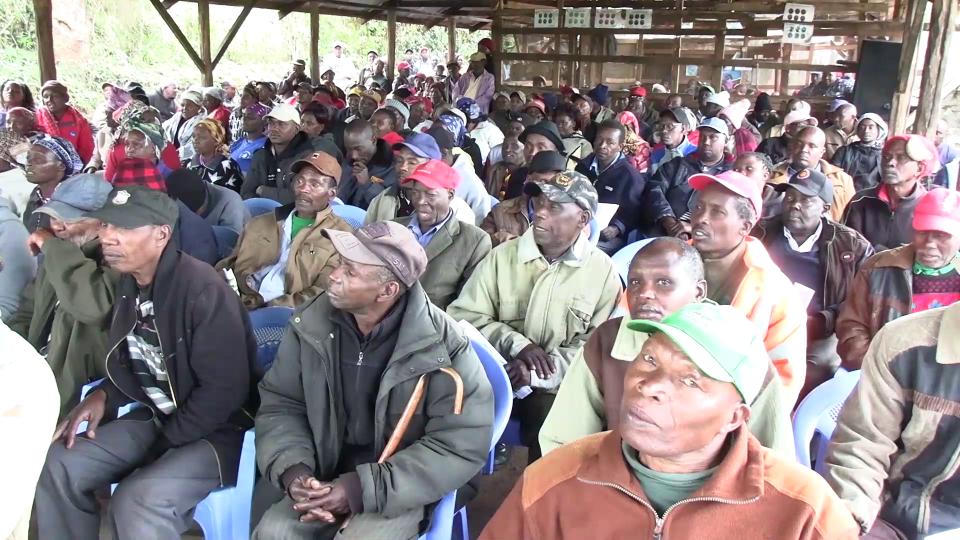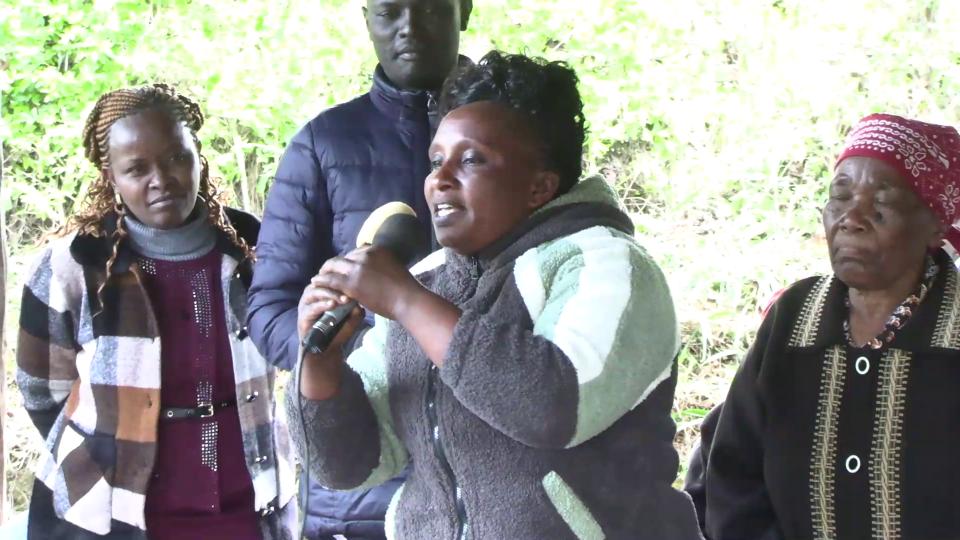
 Farmers from the Rung'eto coffee cooperative society in Kirinyaga during an AGM/FILE
Farmers from the Rung'eto coffee cooperative society in Kirinyaga during an AGM/FILECoffee farmers from various cooperative societies in Kirinyaga County have threatened to withhold their coffee sales if the government compels them to adopt the new delegate system.
The Ministry of Co-operatives has instructed all large coffee co-operative societies to amend their laws and adopt a delegates system that will see about 500 farmers meet on behalf of farmers during general meetings.
The selection of delegates must reflect diversity that includes geographic distribution, gender equity, age diversity and include persons with disabilities to address challenges faced in convening the thousands of farmers for meetings.
But the farmers have rejected the directive, saying they want to be allowed to represent themselves and air their views during meetings.
Johan Njue from Rung’eto Co-operative Society said the government should focus on streamlining the services it renders to improve farmers’ returns.
He faulted the government saying it promised to waive debts incurred by coffee co-operative societies last year to no avail.
Payments delayed, he said, making it difficult for them to tend to their farms and subsidised fertilizers were disbursed too late.
“We struggled to raise money to harvest the coffee and support our families. We have a board that we elected and have faith in it. Let us be left to run our affairs,” he said.
The farmers have now threatened to take to the streets if the government will not heed to their demands and withdraw the directives.
Farmers from Karithathi co-operative society that is made up of Kii, Karimikui and Kiangoi factories who met during an annual general meeting, told their chairperson Joyce Wanjiku and her management team to inform the ministry that they will not be complying with the directive.
 Jane Njeri, a farmer affiliated with Karithathi coffee co-operative society, during an annual general meeting/HANDOUT
Jane Njeri, a farmer affiliated with Karithathi coffee co-operative society, during an annual general meeting/HANDOUT“We have said no. Let the government stop forcing us to do
things that we don’t want to do. This is our crop and if they persist, we will
just stop selling it,” Gitau Chomba, a farmer, said.














